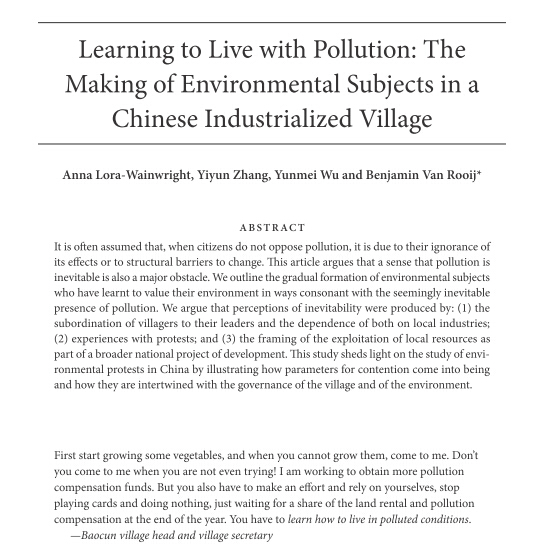
公众风险认知与应对
认知与污染:环境保护与中国的工业化
收藏

ABSTRACT
It is often assumed that, when citizens do not oppose pollution, it is due to their ignorance of its effects or to structural barriers to change. This article argues that a sense that pollution is inevitable is also a major obstacle. We outline the gradual formation of environmental subjects who have learnt to value their environment in ways consonant with the seemingly inevitable presence of pollution. We argue that perceptions of inevitability were produced by: (1) the subordination of villagers to their leaders and the dependence of both on local industries; (2) experiences with protests; and (3) the framing of the exploitation of local resources as part of a broader national project of development. This study sheds light on the study of envi- ronmental protests in China by illustrating how parameters for contention come into being and how they are intertwined with the governance of the village and of the environment.
摘要
人们常常想当然地认为,当公民不反对污染,这是由于其影响或结构性障碍来改变自己的无知。本文认为,从某种意义上说,污染是必然的也是一大障碍。我们勾勒出逐步形成谁学会了珍惜自己的环境的方式辅音与污染看似必然存在的环境课题。我们认为,必然性的认识是由制作:(1)村民自己的领导人和当地产业的依赖从属; (2)遇到与抗议; (3)当地资源的开发利用作为发展的一个更广泛的国家项目的一部分的框架。通过说明它们是如何进行竞争参数应运而生,如何交织在一起的环境中村的治理和这项研究揭示了在中国envi-境的抗议这项研究的光。
